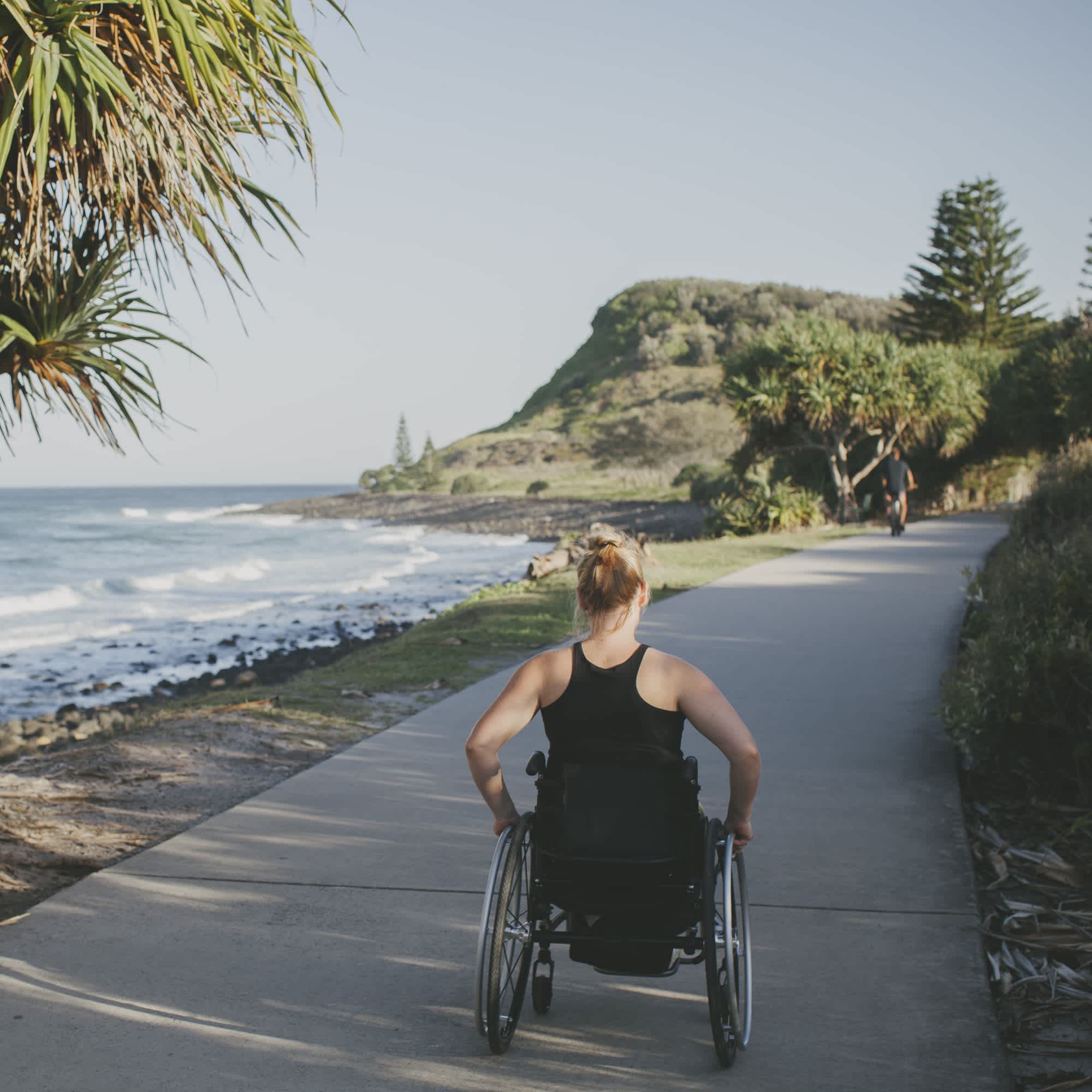
- POPSUGAR Australia
- Fitness
- I Have Borderline Personality Disorder, and I’ve Grown So Much Since My Diagnosis
I Have Borderline Personality Disorder, and I’ve Grown So Much Since My Diagnosis

Growing up, I was almost always happy. It wasn’t until I started high school, and one of my closest friendships ended unexpectedly, that I suddenly began to spiral. I didn’t know why this seemingly small life event had affected me so deeply, but it had. For a while, I cried almost every day – and because I didn’t understand why this friendship had ended, I constantly questioned my self-worth. I began feeling paranoid about other friendships and relationships because I was so insecure and worried that other friends would leave me. Looking back, this was the first time I had experienced what I now know to be symptoms of borderline personality disorder, a diagnosis that’s associated with fear of abandonment. It was also the first time I ever considered that I might need help.
Then, in late high school and early college, I entered into a couple of relationships. While both made me happy at times, they were also unstable – a pattern that’s common for people with BPD. I constantly questioned my partners, wondering if they still liked me and fearing that they would leave me. I felt desperate to stay in these relationships, which at times felt like the centre of my world. Breakups are always hard, but when you have BPD, they can make you feel hopeless. I found myself trying anything I could to make these relationships work – to make them stay.
Truthfully, I think a part of me always knew that I needed help, but I was afraid to ask for it. I questioned whether I was being overdramatic, and I insisted that I would be OK even though I wasn’t. I was also scared of the stigma surrounding this diagnosis, so I dealt with the symptoms on my own for a long while, before finally deciding last year to seek out help. At the beginning of the COVID-19 pandemic, my university closed, and I moved home to take courses online. With the added stress of the pandemic, I decided to finally take the step of booking appointments with a therapist and a psychiatric nurse practitioner.
Eventually, my therapist diagnosed me with BPD, which is characterized by instability in one’s emotions and relationships, as well as other symptoms, including a shifting sense of self, impulsivity, anger, feelings of emptiness, and self-harm. Even though I had suspected that I was experiencing symptoms of BPD before I was diagnosed, part of me still didn’t want to believe it. BPD is one of the most stigmatised mental illnesses there is – people with this disorder are often unfairly portrayed as manipulative or attention-seeking. The stigma is so pervasive that patients may even find it difficult to find a therapist who will see them and take their symptoms seriously.
Even though I was struggling and needed help, I feared this diagnosis. I didn’t want to be defined by a mental illness, and I was scared that people would suddenly think I was some kind of manipulative monster when in reality, I was the same person I had always been.
So, after being diagnosed, I browsed the internet to find other people with BPD and learn more about living with this disorder. Not only did their stories make me feel less alone, but they also allowed me to begin to see the beauty in this diagnosis. I knew that I needed to have the same compassion for myself that I did for other people going through similar experiences.
I’ve had a lot of dark moments when it felt like I would never escape the feelings I was experiencing – but knowing that I survived those low points has also brought me strength.
Through my research, I learned that people with BPD tend to be very sensitive. While this can be difficult to manage, it can also garner a deep sense of empathy for others – something I’ve always felt I had, which has served as the foundation for strong friendships. Another trait that many people with this disorder share is heightened creativity, and writing has always been an outlet for me to express myself and deal with difficult emotions in a healthy way. Slowly, I started to see the good again.
A life with BPD can be filled with turmoil, especially before receiving a diagnosis. I’ve had a lot of dark moments when it felt like I would never escape the feelings I was experiencing – but knowing that I survived those low points has also brought me strength. Things have always gotten better, no matter how impossible it felt at the time. BPD has taught me to be resilient and given me hope, despite feeling completely lost at times.
I’m not afraid of this diagnosis anymore, because having it has brought me strength. It brought me the correct treatment, dialectical behavioural therapy, which along with a combination of individual therapy sessions and medications, has allowed me to better manage my emotions and protect my relationships. While I’m still actively learning and growing through my treatment, it has already helped me to better understand myself. I’ve found the support and help I needed to move forward in my life, and I’m actually learning to love myself more than ever since being diagnosed with BPD.


